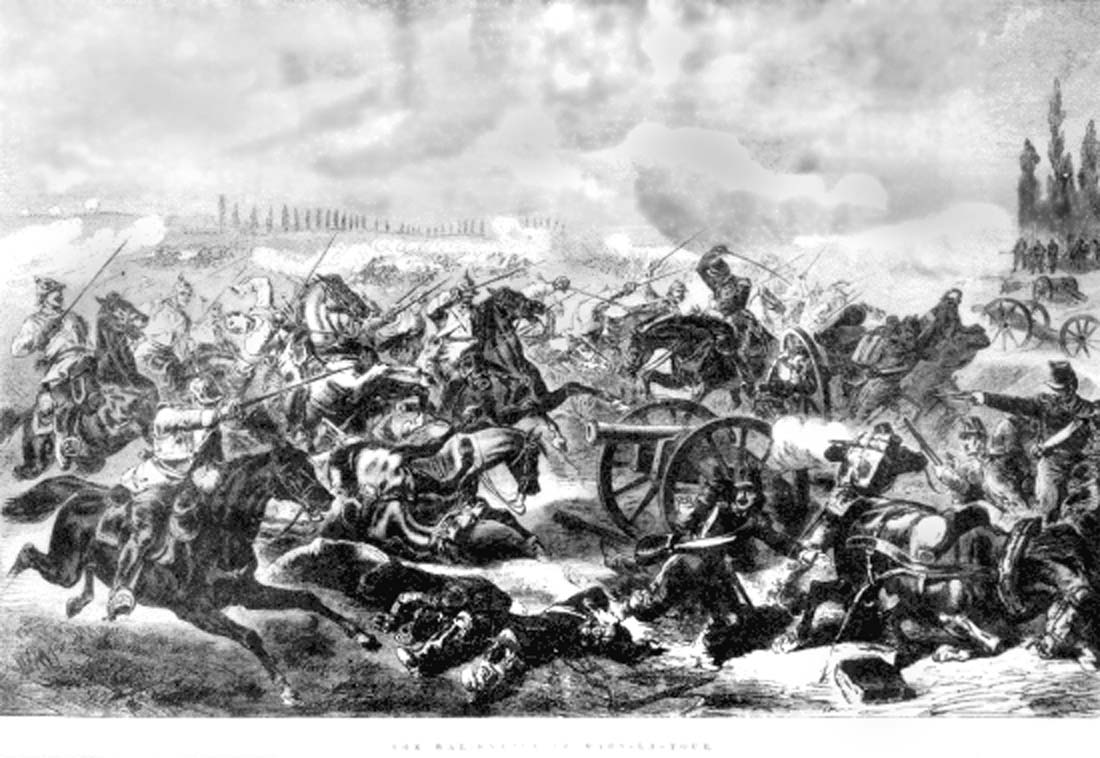At the beginning of the 18th century Germany was in the War of the Spanish Succession. Germany fought with the English and the Dutch against the French. In the early part of the war the French were victorious in the Palatinate. In 1706 Germany took back their land with the help of the Dutch and the English. The German states that participated in that war were Austria, Prussia, and Hanover.
During the reign of Frederick William I (1713–40), the military power of Prussia was significantly improved. He organized the government around the needs of his army, and produced an efficient, highly disciplined instrument of war. The Prussian Army was expanded to 80,000 men, about 4% of the total population. Peasants were drafted into the military and trained for duty, but were sent home for ten months out of each year.
Napoleon I of France reorganized many of the smaller German-speaking states into the Confederation of the Rhine following the battle of Austerlitz in 1805. Essentially this enlarged the more powerful states of the region by absorbing the smaller ones, creating a set of buffer states for France and a source of army conscripts. Neither of the two largest German-speaking states were part of this confederation: the Kingdom of Prussia and the Austrian Empire remained outside it. King Frederick William III of Prussia viewed the Confederation of the Rhine as a threat to Prussian interests and allied against Napoleon. At this time the reputation of the Prussian army remained high from the period of the Seven Years' War. Unfortunately they retained the tactics of that period and still relied heavily on foreign mercenaries. The lack of military reforms would prove disastrous. Prussian defeats at Jena and Auerstedt led to a humiliating settlement that reduced the size of the country by half.
By 1815 there were 39 separate German-speaking states, loosely joined (for free trade purposes) in the German Confederation, under the leadership of Prussia and Austria. Under the leadership of Chancellor Otto von Bismarck, Prussia united the German states and defeated both Austria and France, 1866 to 1871, allowing the formation of a powerful German Empire, which lasted until 1918. Bismarck after 1871 dominated European diplomacy, and set up a complex system of balances that the peace. He was replaced in 1890 by the young Kaiser Wilhelm II, who built up a powerful Navy to challenge the British, and engaged in reckless diplomacy.
Bismarck wanted a war with France to unify the German peoples, and French Emperor Napoleon III, unaware of his military weakness, provided the Franco-Prussian War of 1870-71, expecting support from Prussia's recent enemies. Unlike in the war only a few years ago, the Germans turned not against each other, with the first emergence of a strong German national sentiment in the background. Instead, the southern German monarchs of Baden, Württemberg and Bavaria honoured their secretly negotiated treaties of mutual defence with Berlin, while Austria remained neutral.
The Germans, led by King William I of Prussia and Moltke the Elder, mobilized a mass conscript army of 1.2 million men ( 300,000 regulars and 900.000 reserves and Landwehr) which faced 492,585 experienced regular French soldiers under Napoleon III of France + 420.000 Garde Mobile. Within the first month of war the German army encircled big French armies, at Gravelotte, Metz and Sedan and destroyed them . The war culminated with the defeat of the French army during the siege of Paris, and was followed by the proclamation of the German Empire in 1871.


No comments:
Post a Comment